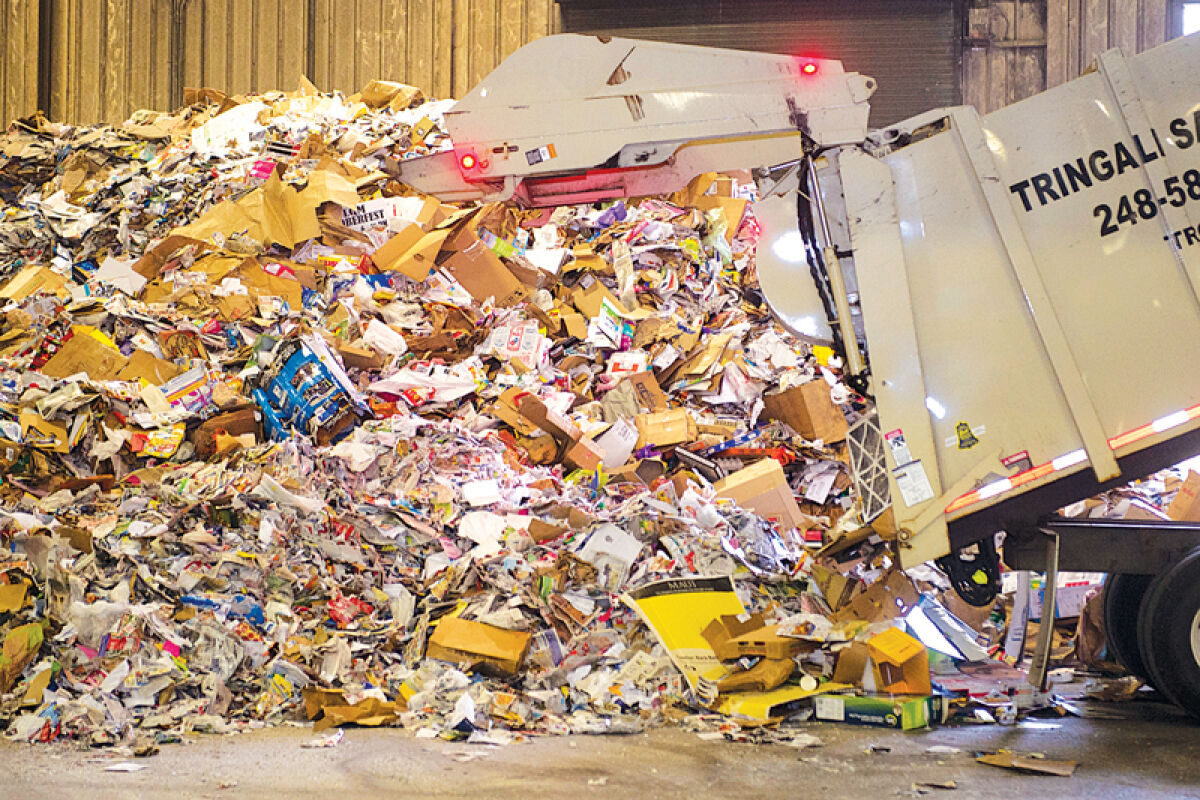METRO DETROIT — A fleet of 15 electric recycling trucks will take to the streets of Macomb, Oakland and Wayne counties to replace some of the older diesel-fueled vehicles.
This transition will begin this month and is expected to be completed by December, 2026, with the new EV trucks on the road by this summer, according to Phil Roos, who is the director of the Michigan Department of Environment, Great Lakes and Energy.
“In the early part of 2025, we’re going to release a competitive RFP (request for proposal) for applicants in those three county areas, and we’ll be reviewing those, scoring them, and then announcing the awards, which should be early summer,” Roos said. “And then we can start putting these in place.”
According to Roos, EGLE was awarded $4.4 million by the Environmental Protection Agency’s Clean Heavy-Duty Vehicles Program, which is made possible through the Inflation Reduction Act.
He said that aging diesel-fueled vehicles will be replaced, which has a lot of public-health benefits, including reducing air pollution and noise.
“But also cutting costs, which is important so more dollars can be put into the operation and making proper use and recycling some of our waste,” Roos said. “That really ties into our state’s MI Healthy Climate Plan and its goals, and importantly, these are going to be operating in historically disadvantaged communities that are more vulnerable to the negative impacts of climate change and air quality challenges. So it’s a win, win all around.”
According to Roos, the MI Healthy Climate Plan serves as Michigan’s “roadmap” for decarbonization and making the economy 100% clean energy by 2050 to provide public health benefits as well as lower residents’ utility costs, make renewable energy more accessible and aid in job creation.
According to Roos, the recycling rate has gone up, and he would like to increase it even more.
He said that it was 14% as recently as 2018, and that it is now close to 25%.
Roos shared that he would like for the rate to increase to 45% at some point.
“Recycling trucks and recycling efforts are a key part of that,” he said.
Roos emphasized the importance of implementing the change in order to improve air quality.
“We know that diesel as an emission can cause scent, respiratory issues, (and) asthma,” he said. “It also, of course, emits carbon into the air. This will make a big difference on all of those fronts.”
According to EGLE, replacing the diesel-fueled trucks with electric trucks is expected to cut 1.19 metric tons of nitrogen oxides and 1,545 metric tons of carbon dioxide per vehicle over their 15-year lifespan.
In addition to the environmental benefits of implementing EV recycling trucks, there are also more career opportunities in Southeast Michigan for drivers to operate the vehicles. The $4.4 million funding includes training for 30 drivers and mechanics through partnerships with the Michigan Department of Labor and Economic Opportunity’s Electric Vehicle Jobs Academy.
LEO Director Susan Corbin explained the impact that this transition will have on job creation. “There will be an investment of nearly $400,000 to support training efforts for up to 30 people who will be using this equipment,” Corbin said. “So we know that as a state, by making investments in our workforce like this, we are putting people on really terrific career pathways that are going to put more people into the middle class. So that’s what I’m really excited about with this activity.”
Corbin shared that around three years ago, Gov. Gretchen Whitmer created the EV Jobs Academy to champion the effort across the state.
According to Corbin, $5 million has been invested to prepare the state’s workforce to make the transition from internal combustion engines to electric vehicles.
“We’ve had nearly 100 stakeholders working on the EV Jobs Academy,” she said. “It’s not just preparing our workforce, it’s preparing all of our partners. Our community colleges have been strong partners in this.”
Corbin also shared that unions have been supportive of the effort. According to her, training will be provided to 30 people under the grant.
“Michigan has demonstrated time and again that it is a leader in clean energy advanced manufacturing, and part of what is required to maintain that edge is deploying technologies that haven’t been widely used before in new contexts and demonstrating that they work,” said Zachary Kolodin, who is the director of the Michigan Infrastructure Office.
According to the state’s website, Michigan’s EV infrastructure is growing faster than the national average.
In 2023, the state increased the number of public direct current fast charging stations by 52%, and is now home to 3,900 charging ports.
With the implementation of the 15 new EV recycling trucks, 15 fast-charging stations will be installed.
Kolodin explained that in order to deploy the EV recycling trucks, they have to have a large enough battery to complete a circuit of a neighborhood or multiple circuits.
“We need an EV charging station that can replenish their batteries quickly enough so that they can be reused on an appropriate schedule,” Kolodin said. “This is one reason why you see EV school buses being such a success, because EV school buses have two defined routes that they have to run every day. So you’ll get the morning route that charges up overnight, and then an additional charge to run the afternoon route, and then the school buses are done. So that’s a really great-use case.”
Kolodin also added that, “I think demonstrating that this technology works in this new context is useful in part because refuse collection is also fairly predictable, and so you can fairly easily deploy electrified vehicles in that context.”
For more information on the new EV recycling trucks, visit www.michigan.gov/egle and search “Electric Recycling Trucks.”
 Publication select ▼
Publication select ▼






















